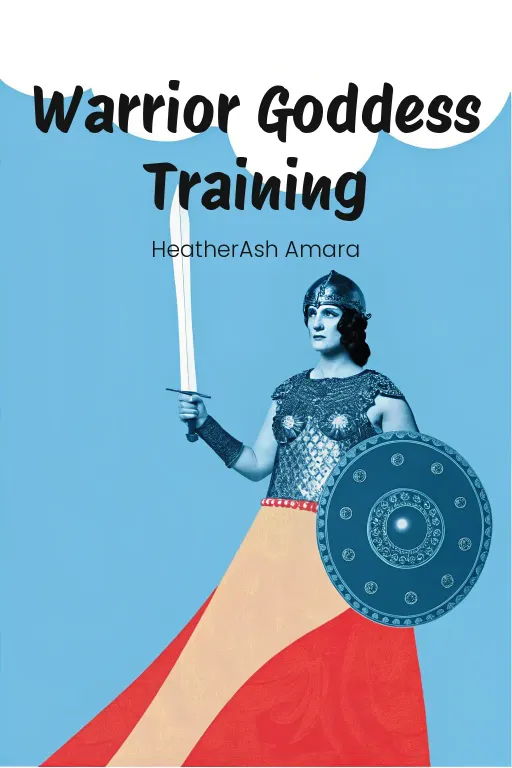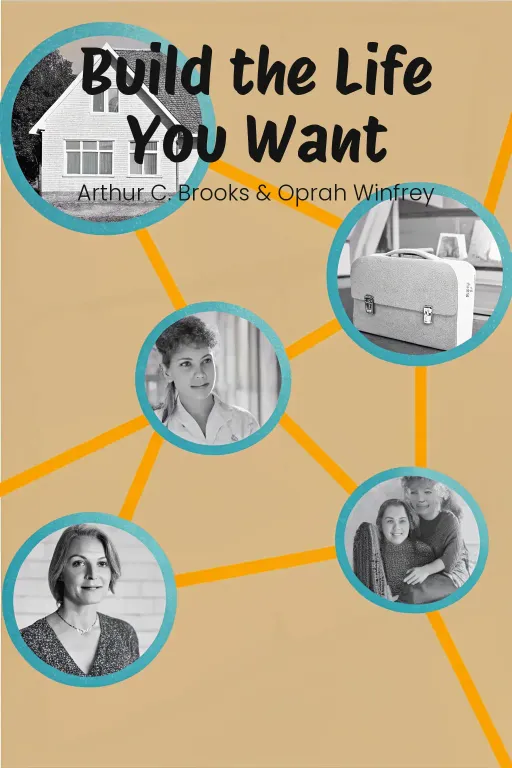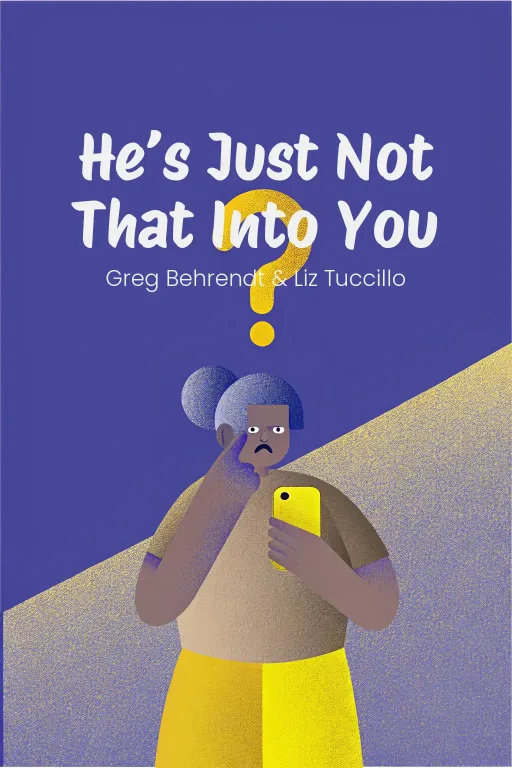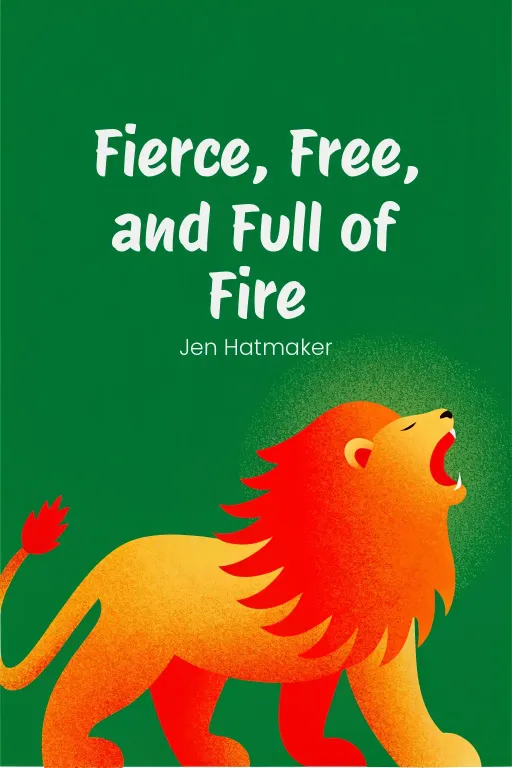
Love (Better): Boundaries & Beyond
Podcast by The Mindful Minute with Autumn and Rachel
Introduction
Part 1
Autumn: Hey everyone, welcome back! Today we're diving into a book that’s been creating waves in the relationship world: “Reflections of a Man” by Amari Soul. It really gets you thinking about love, self-worth, and everything in between. So, if you've ever questioned your value in a relationship or struggled with the whole “settling versus growing” dilemma, this episode is definitely for you. Rachel: Absolutely, and honestly, who hasn't wrestled with those questions? Relationships can be such a minefield, right? This book claims to offer some guidance, digging into self-love, trust, and building a genuine connection. Sounds simple enough, but I'm betting there's more to it than meets the eye. Autumn: Oh, without a doubt. Amari Soul doesn’t hold back. He challenges readers—especially women—to really raise their standards, pay attention to their emotional needs, and understand what a healthy relationship truly looks like. It’s all about empowerment, Rachel—taking control of our own love stories. Rachel: “Empowerment,” huh? I like that angle. So, the book says love is an “active journey,” but why do so many people keep stumbling along the way? Is it a lack of trust? Poor communication? Or is it that people aren't laying the groundwork properly to begin with? Autumn: It's interesting you mention groundwork, Rachel, because we’re going to break that down today. We’ll be looking at three key ideas from the book. First, self-love, which is the foundation of everything. Then we'll address trust and vulnerability, where relationships either flourish or fall apart. And finally, we’ll see how to build a love story that grows richer and more fulfilling as time goes on. Rachel: So, it's not just about finding “the one,” but about learning how to build something lasting with them. Sounds ideal, but how do you balance that kind of optimism with, you know, reality when things don't go as planned? Autumn: That's a really insightful question, Rachel, and it's definitely something we’ll explore as we discuss the book's blueprint for transforming relationships. Let's start this conversation by laying the foundation with self-love.
Self-Love and Personal Strength
Part 2
Autumn: As Amari Soul says, self-love is the foundation for any fulfilling relationship. It's about truly knowing your own value and prioritizing your emotional well-being before getting deeply involved with someone else. Honestly, Rachel, without that foundation, any relationship is on shaky ground from the start. Rachel: "Self-love" is definitely a buzzword these days, isn't it? Everyone nods along, but rarely stops to really define it. What does it actually look like in practice? Beyond the self-care Sundays and bubble baths, what's the core message Amari Soul is trying to get across? Autumn: That's a great point. Amari presents self-love not as some kind of luxury, but as a “real” necessity—like brushing your teeth or getting enough sleep. It's about consciously and consistently investing in your well-being. He challenges you to ask yourself, "Am I showing up for myself the way I show up for others?" For example, he introduces this concept of "self-dating" as a way to reconnect with yourself. Rachel: Self-dating? Okay, that sounds like something straight out of a rom-com. What are we talking about here—candlelit dinner for one? Movie night with popcorn? Autumn: In a way, yes! But it's less about the perfect setting and more about the intention behind it. He shares a story of a woman who started going on solo dates to bookstores. By making time to rediscover her love for poetry, she reignited her sense of self—which had been buried under the pressures of life. It wasn't about escaping loneliness; it was about embracing solitude to grow as a person. Rachel: I like that. So, it's not just "treat yourself"; it's "meet yourself." But, devil's advocate here: isn't there a fine line between self-investment and self-isolation? When does prioritizing yourself become an excuse to avoid opening up to others? Autumn: I see what you mean, Rachel. But self-love isn't about shutting yourself off from the world. It's about creating a healthy foundation for meaningful connections. Think of it like this: if you don't take care of your own emotional needs, you might end up relying on someone else to fill that void. And we both know how unhealthy that kind of dependency can be, right? Rachel: Absolutely. That’s when relationships become rescue missions instead of genuine partnerships. But let's dig a bit deeper - Amari also talks about vulnerability as a part of self-love. Doesn’t that inherently involve trusting others with your flaws and your fears? Autumn: Exactly! And that's where embracing vulnerability becomes a superpower. Amari argues that vulnerability isn't about weakness at all; it's actually about courage. He tells the story of a woman who was recovering from a “really” painful breakup, and she admitted that she was terrified of trusting someone again. By allowing herself to face that fear and take emotional risks, she actually discovered a deeper trust in herself. Rachel: So, in a way, vulnerability is like emotional weightlifting. You don't get stronger by avoiding the heavy stuff. You get stronger by carrying it, even when it hurts. Autumn: Perfect analogy! Vulnerability helps you build emotional resilience. And when you're resilient, you're not as easily thrown off balance by life's ups and downs, or by other people's issues. You become someone who's not afraid to set boundaries, which, by the way, is another key theme that Amari stresses. Rachel: Ah, boundaries—the unsung heroes of self-respect. But how do you actually draw those boundaries without coming across as cold or unapproachable? Take the example of this woman who always said "yes" to everyone. When she finally started saying “no," how did she handle the fallout? Autumn: Well, she definitely faced some resistance at first, of course. That's normal, especially when you've been accommodating for a long time. But the change happened when she started communicating her needs clearly and kindly. She wasn't putting up walls; she was building bridges on her own terms. For her, boundaries became a way to teach others how to treat her with respect. Rachel: So, boundaries aren't about shutting people out - they're filters. You're filtering in the behaviors and relationships that support your well-being and filtering out the ones that drain you. That feels manageable, but let's be “real,” it takes guts. Autumn: It definitely does. Courage and self-awareness are essential here. Amari even suggests some practical things you can do to build inner strength, like keeping a journal to focus on the positive things in your life, or setting aside time for yourself every week. These little things can make a huge difference in how you see yourself, and how others see you too. Rachel: I think that brings us back to the core of it, Autumn - self-love isn't just about those feel-good moments. It's about preparing ourselves to love and be loved in a way that's sustainable and healthy. You need the roots before you can grow the garden, right?
Navigating Romantic Relationships
Part 3
Autumn: Building on self-love, it's natural to discuss how this affects our romantic relationships. Amari Soul suggests that a solid sense of self-worth helps us navigate the complexities of relationships, especially distinguishing between temporary flings and lasting partnerships. Rachel: Right, navigating relationships. If self-love is the foundation, then trust, transparency, and emotional alignment are the building blocks. Now, the book kind of throws shade at "cuffing season." I mean, what's so wrong with a little temporary connection? Isn't it, well... harmless? Autumn: Harmless in some cases, sure, but not when mistaken for something deeper. Amari Soul distinguishes between these superficial connections, like "cuffing," and genuine partnerships. He defines cuffing as a convenient, short-term relationship to avoid loneliness, which often falls apart because it lacks real compatibility. He argues that true partnerships prioritize shared values, emotional openness, and long-term growth. Rachel: Okay, so cuffing is just playing house for the winter. Got it. Why do so many relationships feel like they fall into this "convenience" category? Is it just FOMO, or are we lowering our standards to avoid being alone? Autumn: Probably a bit of both, Rachel. The book tells a story about a woman who jumped into a relationship during a difficult time. At first, he seemed perfect—funny, kind, supportive. But over time, she realized there was no real depth. He wasn’t interested in her dreams or struggles. When the initial excitement faded, so did the connection. Rachel: Oof, brutal but true. Chemistry gets you in the door, but compatibility keeps you there, right? What does Amari suggest as an antidote to these "convenience connections?" Autumn: He emphasizes intentionality. Instead of looking for connections to fill a void, he encourages us to be clear about what we want and need. Relationships thrive on mutual respect and emotional alignment. One quote stood out: "Love isn't about 'cuffing' for a season; it's about setting their heart free.” A healthy relationship should feel like freedom, not a prison. Rachel: Makes sense. It’s not just about compatibility, though; trust is huge. Amari dedicates a big part of the book to this. What's your take on trust as the foundation for lasting love? Autumn: Trust is absolutely essential. Amari says, "When trust is gone, everything else will follow." It's not just about fidelity; it's the small, everyday actions, being consistent, keeping promises, that builds trust over time. He warns against those "small omissions," like withholding truths, because those little cracks can lead to big problems. Rachel: Sounds like "death by a thousand cuts." I bet there’s a story in the book that illustrates this perfectly? Autumn: Exactly. A couple started strong, but one partner started leaving out little details about their day or conversations. Nothing seemed wrong at first, but these omissions made the other partner anxious and suspicious. It escalated into constant arguments, and the trust completely eroded. Amari's point? Transparency is non-negotiable; it’s the glue that holds the relationship together. Rachel: That makes sense. But how do you build transparency without micromanaging or oversharing? Autumn: Small, intentional habits. Amari suggests weekly check-ins—asking, “How can I better support you this week?” or “Is there anything you need clarity on?” These moments create a safe space to address doubts. It's like routine car maintenance—you're preventing major breakdowns. Rachel: Proactive communication—not sexy, but necessary. And then there's infidelity. Amari takes a pretty hardline stance on this, right? Autumn: He does. He frames cheating, emotional or physical, as a conscious choice reflecting deeper issues like a lack of respect or compatibility. One story that stayed with me was about a woman whose partner had an emotional connection with his ex. He might not have crossed physical boundaries, but confiding in someone else created distance, and she felt like a placeholder. Rachel: Ugh, that's rough. Emotional infidelity often gets brushed aside, but it can be just as damaging. What does Amari suggest in these situations, besides "pack your bags?" Autumn: Reflect before you react. He suggests stepping back and asking: What led to this? Were there unmet needs? If both partners are truly committed to rebuilding, there might be hope. But if respect and trust aren’t prioritized, it's time to walk away without blaming yourself. Rachel: And that self-blame trap is so common. People blame themselves for their partner’s actions, instead of realizing it's about the other person’s lack of integrity. Autumn: Exactly, Rachel. Amari suggests knowing when to leave is as much self-love as staying when it's safe. But for those who stay, there’s another layer: discerning emotional compatibility. Rachel: Let me guess—it’s not just about shared Spotify playlists? Emotional alignment goes deeper, doesn’t it? Autumn: Much deeper. Amari recommends focusing on behaviors rather than external traits. One case in the book told of a woman attracted to her partner's charm and success, but he dismissed her opinions, belittled her goals, and made her feel like an accessory. She eventually realized his success masked a lack of emotional depth. Rachel: Classic case of “great packaging, disappointing contents.” So, how do people avoid this trap? Autumn: He offers self-reflective questions: Does your partner respect your boundaries? Do they actively listen without judgment? Do they value you beyond your contributions? These questions reveal if the connection is based on mutual respect or just superficial attraction. Rachel: Good, practical advice. But it all leads back to vulnerability. Let's be honest—being emotionally transparent is hard. Autumn: It is, but Amari insists vulnerability is transformative, for both individuals and couples. One story highlights a man scarred by his parents' divorce who struggled to open up but healed as his partner patiently created a safe space for him to share. Vulnerability, as Amari sees it, isn’t oversharing – it's about building safety, promoting growth, and fostering mutual compassion. Rachel: Embracing the heavy stuff together becomes the ultimate relationship flex. Got it. Any final thoughts on this from the book? Autumn: Just one—healthy love requires patience, resilience, and openness to imperfections. Strong partnerships support an environment where vulnerability feels less like a risk and more like a gift.
Mutual Growth and Enduring Commitment
Part 4
Autumn: So, now that we’ve explored how relationships function, let’s dive into how to actually make them last. This part of Amari Soul's book focuses on that collaborative spirit – how mutual growth and commitment create something truly enduring. Basically, he’s breaking down how you build a resilient partnership that can handle the inevitable ups and downs. Rachel: Okay, but let's be real, Autumn – “lasting love” almost sounds like an urban legend these days, right? I mean, with dating apps and everyone swiping onto the next best thing, how do you even begin to build something that lasts? According to Amari, what’s step one? Autumn: It all starts with active communication and presence, Rachel. It's not just about talking at each other, but really listening and being present, you know? Even when it's hard or inconvenient. Amari emphasizes carving out that intentional time to reconnect amidst all the daily chaos. Rachel: Intentional communication… right. But what does that look like in practice? Because let’s face it, most "talking" turns into venting or maybe even a full-blown argument. How do you keep it constructive? Autumn: Well, Amari gives this example of a couple with really demanding careers. They were feeling disconnected, so they started this simple nightly ritual – just 15 minutes before bed to share their highs and lows, and something they were grateful for. Nothing fancy, but that consistent little act really brought them closer. Rachel: So, instead of grand gestures, it’s about these small, consistent deposits. It's like compound interest, right? Those little moments of connection really add up over time. Autumn: Exactly! They're like investments in your emotional bank account. But, you know, it's not the routine itself, it's the intention behind it. Being fully present sends the message, "I value you, and I'm here for you." Rachel: But how many people actually do this? Most couples skip those check-ins, then wonder why they're suddenly disconnected. If reconnecting is so crucial, what happens when life gets in the way? Kids, overtime, that Netflix series you can't stop watching… Autumn: That's where discipline comes in. Amari suggests these rituals need to be non-negotiable. Maybe it’s a weekly coffee date, a tech-free dinner, or some shared hobby. He mentions a couple who did "Wednesday Walks" – two hours every week, with a babysitter, to really focus on each other. Simple, but it made their relationship a priority, no matter what else was going on. Rachel: Okay, but rituals aren’t some kind of magic bullet. You can have all the Wednesday walks you want, but if you’re not on the same page about goals, or ambitions, doesn’t that build resentment in the long run? Especially if one person is growing in a different direction? Autumn: You’re spot on, Rachel. And that's where the second key comes in – aligning your ambitions with your relational goals. Amari argues that growth within a relationship happens when both people actively support each other’s dreams. You really need to engage with your partner’s aspirations, not just be a passive cheerleader, but a real collaborator. Like teammates. Rachel: Collaboration… Sounds good, but what does that actually mean? Financial help? Emotional pep talks? Rearranging your whole schedule? Autumn: All of the above! There’s this story in the book about a woman who wanted to start a pottery business. At first, her partner dismissed it as just a hobby. But when he saw how passionate she was, he went all in – he took workshops with her, helped her build her online store, even helped with the finances! That shift from being detached to being actively involved transformed their relationship. Rachel: So instead of competing ambitions pulling them apart, they actually tethered their dreams together, huh? That’s pretty rare, because a lot of people treat relationships like a zero-sum game – if you’re winning, I must be losing. Autumn: And that’s the mindset Amari wants people to challenge. A great relationship is about unity without losing your individuality. He suggests regular, big-picture conversations: What are your dreams? How do they line up? If not, how can we support each other? Those kinds of conversations ensure you're growing toward something, not away from each other. Rachel: Okay, here’s where I play devil’s advocate – what happens when one partner feels left behind? One person is soaring in their career; the other feels stuck. Doesn’t that imbalance create tension? Autumn: Absolutely. That’s why Amari talks about equitable partnerships. It's about both people feeling valued for what they bring to the table – whether it’s career success, emotional support, or managing the household. He shares this story about a couple struggling with a really uneven division of labor at home. Once they realized the tension it was causing, they openly discussed their needs and created a flexible system to redistribute chores each week based on who had more capacity. Rachel: So, not just a rigid to-do list, but a flexible plan, huh? Sounds like it would take… a ridiculous amount of communication. And honesty. Autumn: Totally. And that brings us to the last point: compassion and non-judgmental support. Relationships are built on feeling safe enough to be vulnerable. There’s this story in the book about a guy who was afraid to tell his partner about his job insecurities. She sensed something was off, but instead of pushing or judging him, she just offered reassurance, which eventually helped him open up completely. Rachel: That's powerful, Autumn. Shows you that sometimes, the best support isn’t fixing things or giving advice, it's just being there, without judgment, while the other person figures things out. Autumn: Exactly! Amari really emphasizes that compassion isn’t about fixing; it’s about creating space for growth, even when it's messy. He even suggests asking your partner, "How can I support you right now?" It’s simple, but it opens the door to emotional alignment and trust when things get tough. Rachel: Alright, I'm seeing the connection, Autumn. From communication to rituals to compassionate growth, it all boils down to this realization: Commitment isn't just a choice, it's an ongoing collaboration. Autumn: Exactly, Rachel. And for our listeners, remember, lasting love isn't something you find – it's something you build through collaboration, transparency, and lots of patience. Each of these tools that Amari outlines is a stepping stone toward that kind of connection, one that evolves as life changes.
Conclusion
Part 5
Autumn: Okay, Rachel, so today we’ve unpacked the core ideas from Reflections of a Man: self-love, navigating relationships, and this concept of mutual growth. The book really pushes us to approach love deliberately, and that starts with loving ourselves. Honestly, self-love is non-negotiable; it's what gives you the strength to set boundaries, be vulnerable, and, you know, expect what you deserve. Rachel: Right, then we dove headfirst into romantic relationships, right? And you highlighted the difference between those surface-level flings and the relationships that actually stand the test of time. Things like building rock-solid trust, being upfront and honest, and really connecting on an emotional level. It's definitely not a walk in the park, but that's what separates the real deal from the convenient, right? Autumn: Precisely. And we wrapped up talking about mutual growth and lasting commitment—this idea that strong relationships need constant communication, shared ambitions, and a whole lot of compassion. I mean, relationships are a work in progress; they're not something you just decide on once and forget about. Rachel: So, the punchline here is that love isn’t some final destination; it’s a journey, right? Whether it’s prioritizing self-care, cheering on your partner’s goals, you know, or simply asking, "Hey, how can I support you today?" it's about showing up, day in and day out, even when it gets tough. Autumn: Exactly! And for our listeners, think about this: start with yourself. Ask yourself, "Am I treating myself the way I want others to treat me?" That answer could be the key to unlocking healthier relationships across the board. Rachel: I couldn't have put it better myself, Autumn. So, folks, until our next episode, remember: Love is a verb, respect is earned, and trust? Well, that’s a “must-have”. Keep growing, keep building, and we'll catch you next time!









